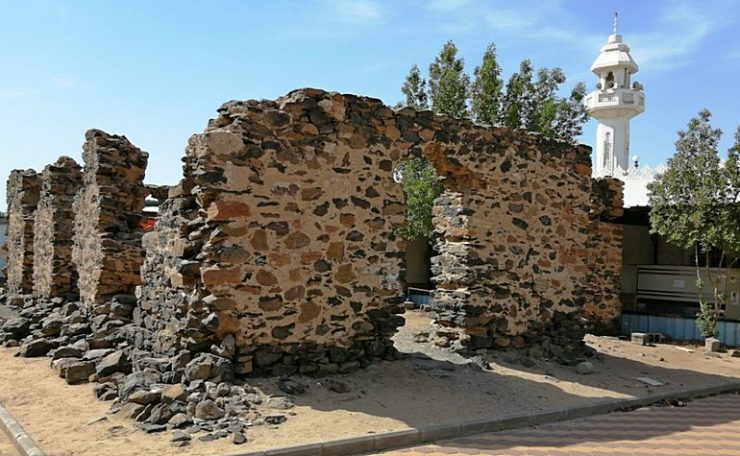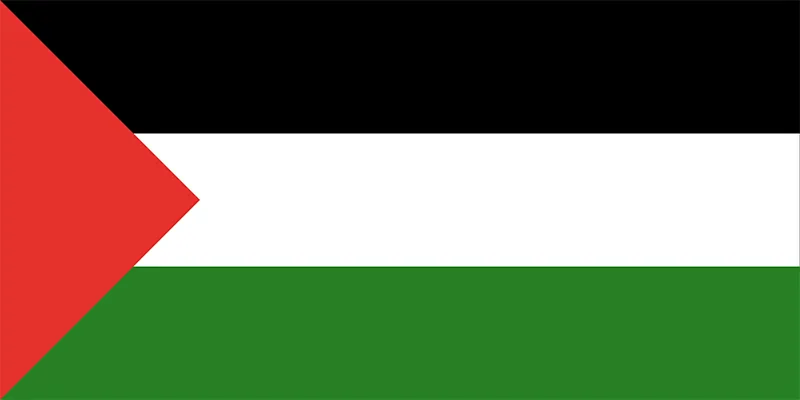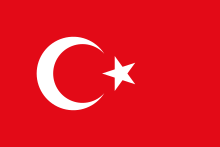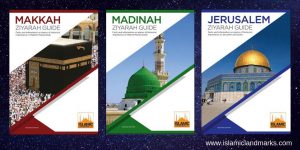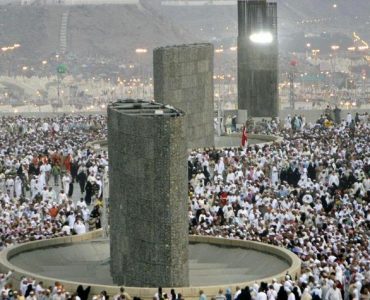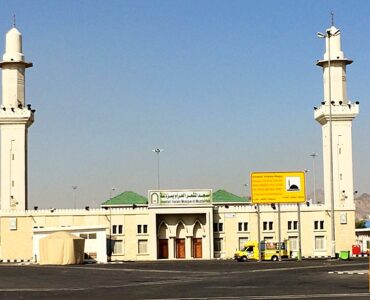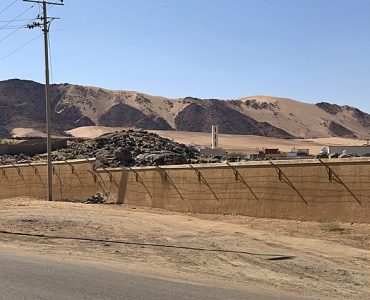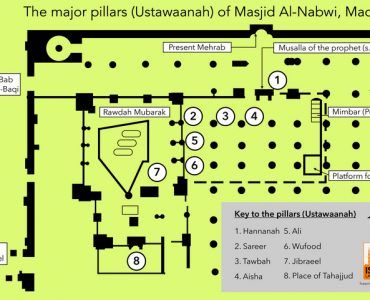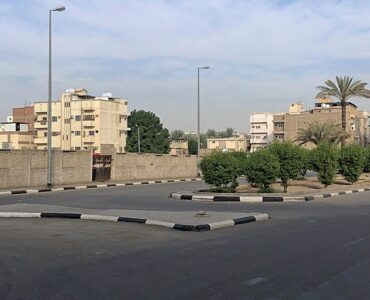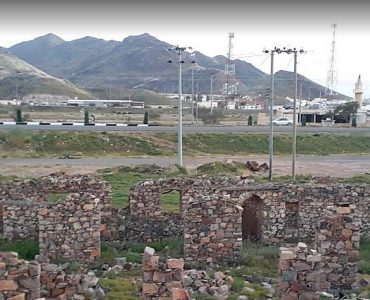Masjid al-Hudaybiah (Arabic: مسجد الحديبية) is in the location where a peace treaty was made between the Prophet (ﷺ) and the Quraysh in 6 AH, which became known as the ‘Treaty of Hudaybiah’. There exists a historic mosque and a new one next to it. Hudaybiah also functions as a Miqat for pilgrims to enter into the state of Ihram.
The Prophet (ﷺ) and the Sahabah set out for Makkah
- After six years living in Madinah, the Prophet (ﷺ) had a dream that he entered Makkah and did tawaf around the Ka’bah. The Companions were delighted when he told them about it as they all revered Makkah and yearned to do tawaf around the Ka’bah.
- Recognising the dream as a sign, the Prophet (ﷺ) left Madinah for Makkah on Monday 1st of Dhul’ Qa’dah 6 AH with the intention of performing Umrah in peace. Accompanying him were 1400-1500 Muslims dressed as pilgrims for Umrah and animals they had brought for sacrifice.
Arriving at Hudaybiah
- The Prophet (ﷺ) had dispatched a scout ahead who came back with the news that the Quraysh were determined to prevent the Muslims from entering Makkah.
- Taking a secondary route to avoid the Quraysh, the Prophet (ﷺ) continued to travel until the Muslims reached Hudaybiyah, about 40km west of the Ka’bah. They pitched camp here.
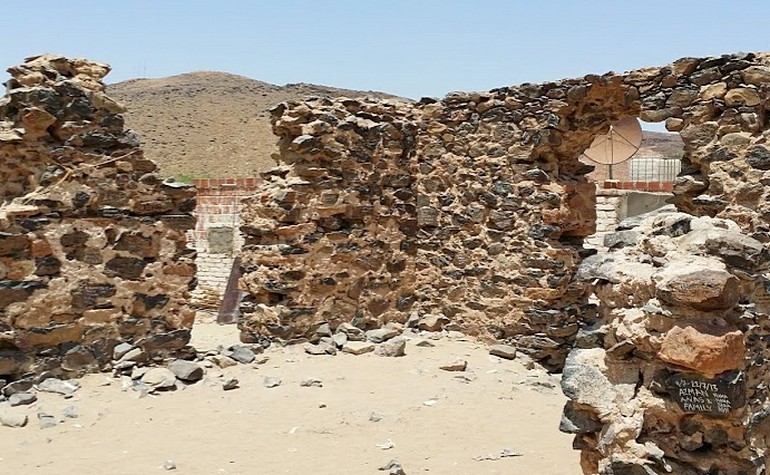

The Pledge of Ridwan
- The Prophet (ﷺ) sent Uthman (رضي الله عنه) to the Quraysh to convince them that they had only come to perform Umrah and to invite them to Islam. He was also instructed to visit the believing men and women still in Makkah to tell them that Allah (ﷻ) will make His religion victorious in Makkah and the time was close when they would no longer be required to conceal their faith.
- Uthman was in Makkah longer than the Muslims had expected and the rumour spread that he had been killed. The Prophet (ﷺ) called for a pledge of allegiance. He sat beneath an acacia tree and the Muslims promised that they would fight with him to the last man. Placing one hand on the other, the Prophet (ﷺ) said, “This is the pledge on behalf of Uthman”.
- Uthman (رضي الله عنه) shortly turned up. The believers were spared from going into battle, but they had proved their sincerity with their pledge. Allah (ﷻ) revealed a verse referring to this pledge in Surah al-Fath:
Allah was pleased with the believers when they swore allegiance unto you beneath the tree.”
(48:18)
- From that day, the pledge under the tree came to be called ‘Bay’a Al-Ridwan’, or the pledge of those who had earned Allah’s pleasure.
Negotiation with the Quraysh at Hudaybiah
- The Quraysh then sent Suhayl ibn ‘Amr. When the Prophet (ﷺ) saw him coming, he remarked, “It is clear that they want peace since they have sent this man.” He told his Companions to prepare a draft agreement.
He called for Ali (رضي الله عنه) and told him, “Write: In the name of Allah, the Merciful, the Compassionate.”
“By Allah”, Suhayl said, “we do not know who this Merciful is. Rather write ‘In your name, O Allah'”.
The Muslims said, “By Allah, we will only write, ‘In the name of Allah, the Merciful, the Compassionate.'”
The Prophet (ﷺ) said, “Write, ‘In Your name, O Allah.'”
Then he said, “Write, ‘This is what Muhammad, the Messenger of Allah has agreed.'”
“By Allah”, retorted Suhayl, “if we accepted that you were the Messenger of Allah, we would not have prevented you from reaching the House of Allah or fought you. Rather write, ‘Muhammad ibn ‘Abdullah.'”
The Prophet (ﷺ) said, “I am the Messenger of Allah even though you do not believe me. Write, ‘Muhammad ibn ‘Abdullah.'”
He asked Ali (رضي الله عنه) to erase what he had written but Ali said, “By Allah no, I will not erase it.”
The Prophet (ﷺ) said, “Show me the place,” and he erased it himself. Then he said, “This is what the Messenger of Allah agrees provided that you give us leave to perform tawaf of the Ka’bah.”
Suhayl said, “By Allah, we will not allow the Arabs to say that we submitted to pressure. It will have to be next year.” It was also written: “On the condition that if any of our men, even if he has your religion, comes to you, you will return him to us.”
Reaction to the terms of the truce
- When the Muslims saw the terms of the truce and what it meant to the Messenger of Allah, they were very distressed. The effect on them was so great that Umar (رضي الله عنه) asked Abu Bakr (رضي الله عنه) angrily, “Did not the Messenger of Allah say to us that we were going to go to the Ka’bah and perform tawaf?”. “Yes. But did he tell you that it was going to be this year?”, Abu Bakr (رضي الله عنه) responded. He assured him, “You will go there and you will do tawaf”.
- When the Prophet (ﷺ) had finished drawing up the treaty, he sacrificed a camel and then shaved his head. This was a difficult time for the Muslims because all their hopes had been dashed. They had left Madinah with the firm intention of entering Makkah and doing Umrah. Now they felt beaten and crushed. However, when they saw the Messenger of Allah had made the sacrifice and shaved his head, they rushed to follow his example.
A humiliating peace or a clear victory?
- Then the Prophet (ﷺ) broke camp and returned to Madinah. On the journey back, Allah (ﷻ) confirmed that the truce of Hudaybiah was not a set-back but a victory:
Surely We have given you a clear victory, that Allah may forgive you your former and later sins, and complete His blessing on you and guide you on a straight path and that Allah may help you with a mighty help.”
(48:1-3)
- Umar (رضي الله عنه) said, “Is this a victory then, Messenger of Allah?” He (ﷺ) replied, “Yes.”
The two Hudaybiah mosques
- The remains of the old stone mosque are still present. The new mosque is known as Masjid Shumaysi and has modern facilities to enable pilgrims to get into the state of Ihram for performing Umrah.
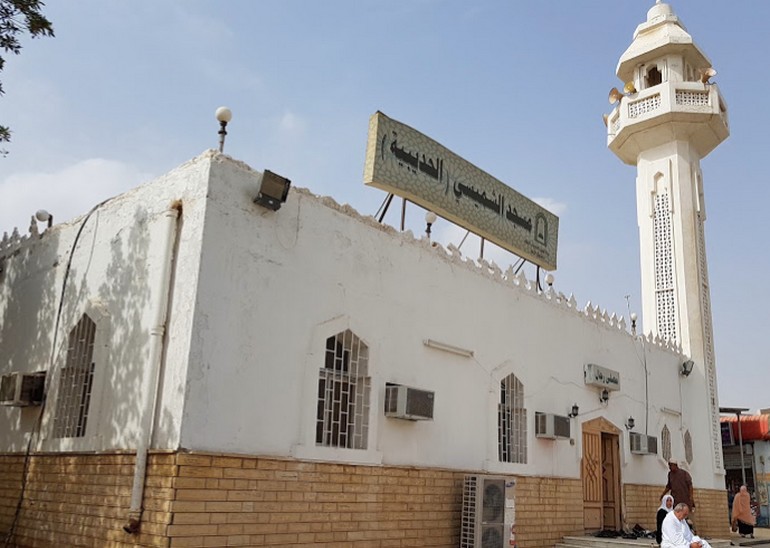

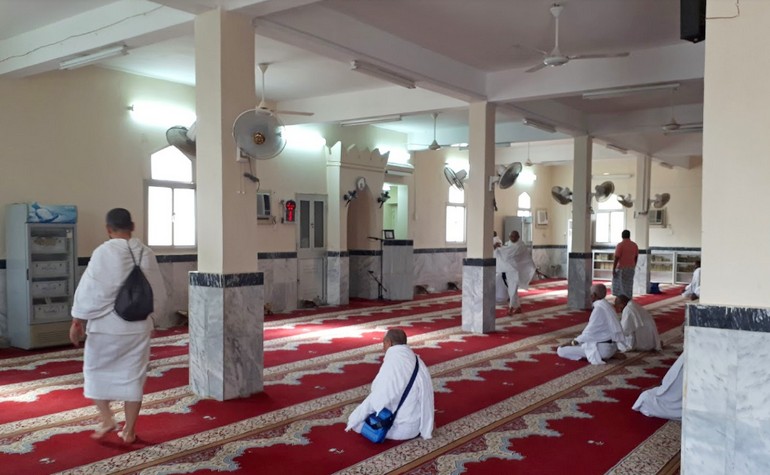

References: The History of Makkah Mukarramah – Dr. Muhammad Ilyas Abdul Ghani, Holy Makkah – Shaikh Safiur-Rahman Mubarakpuri, Wikipedia

